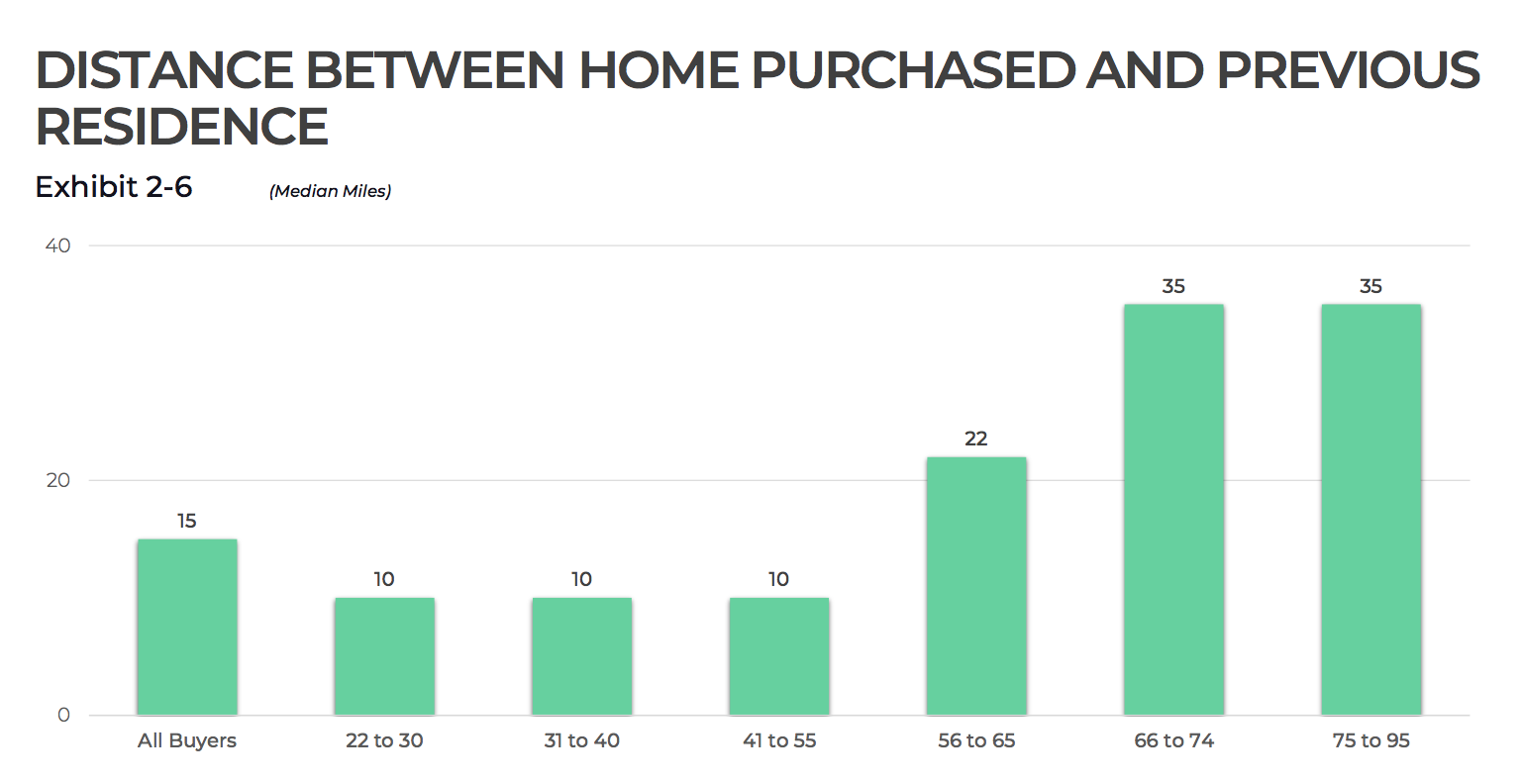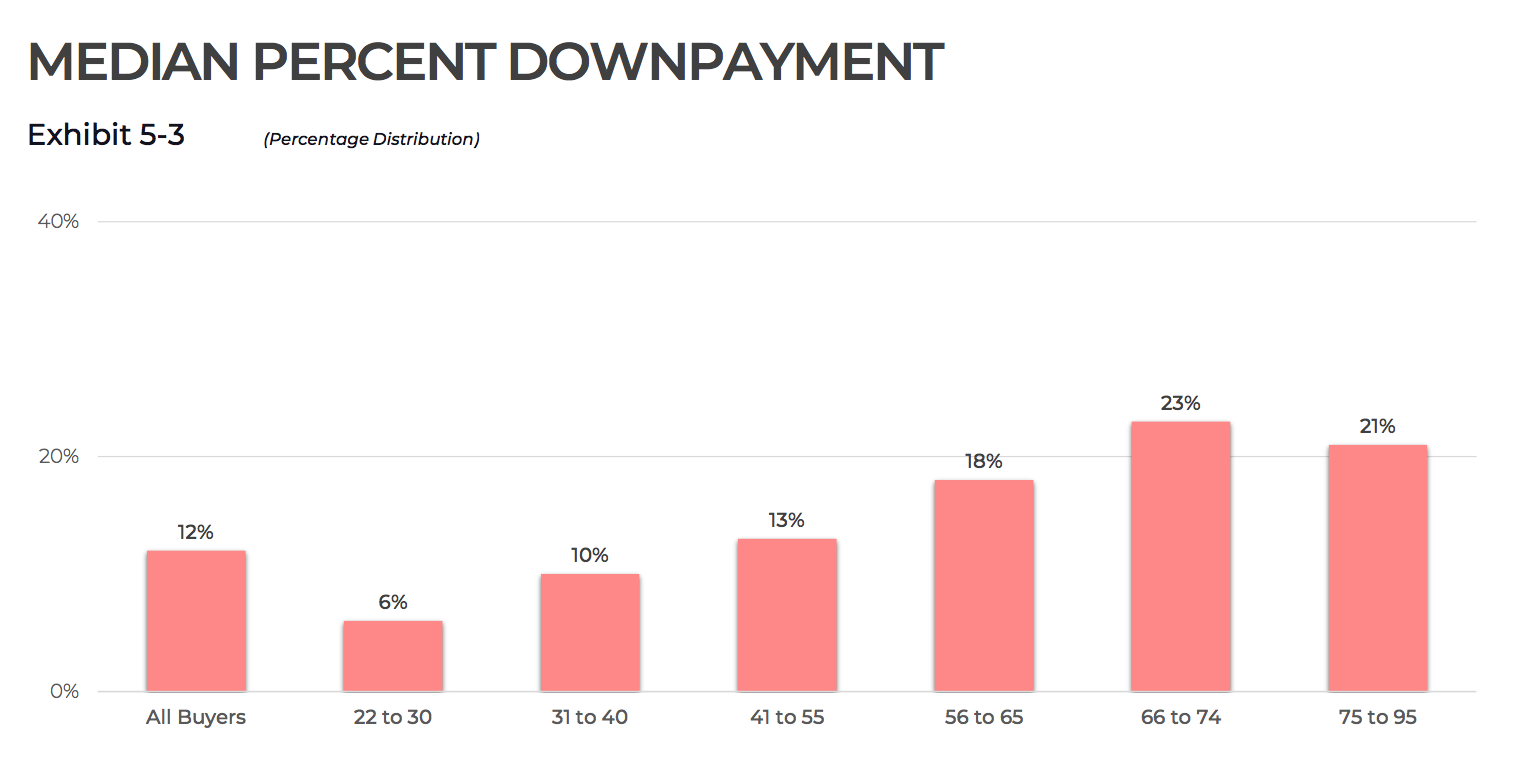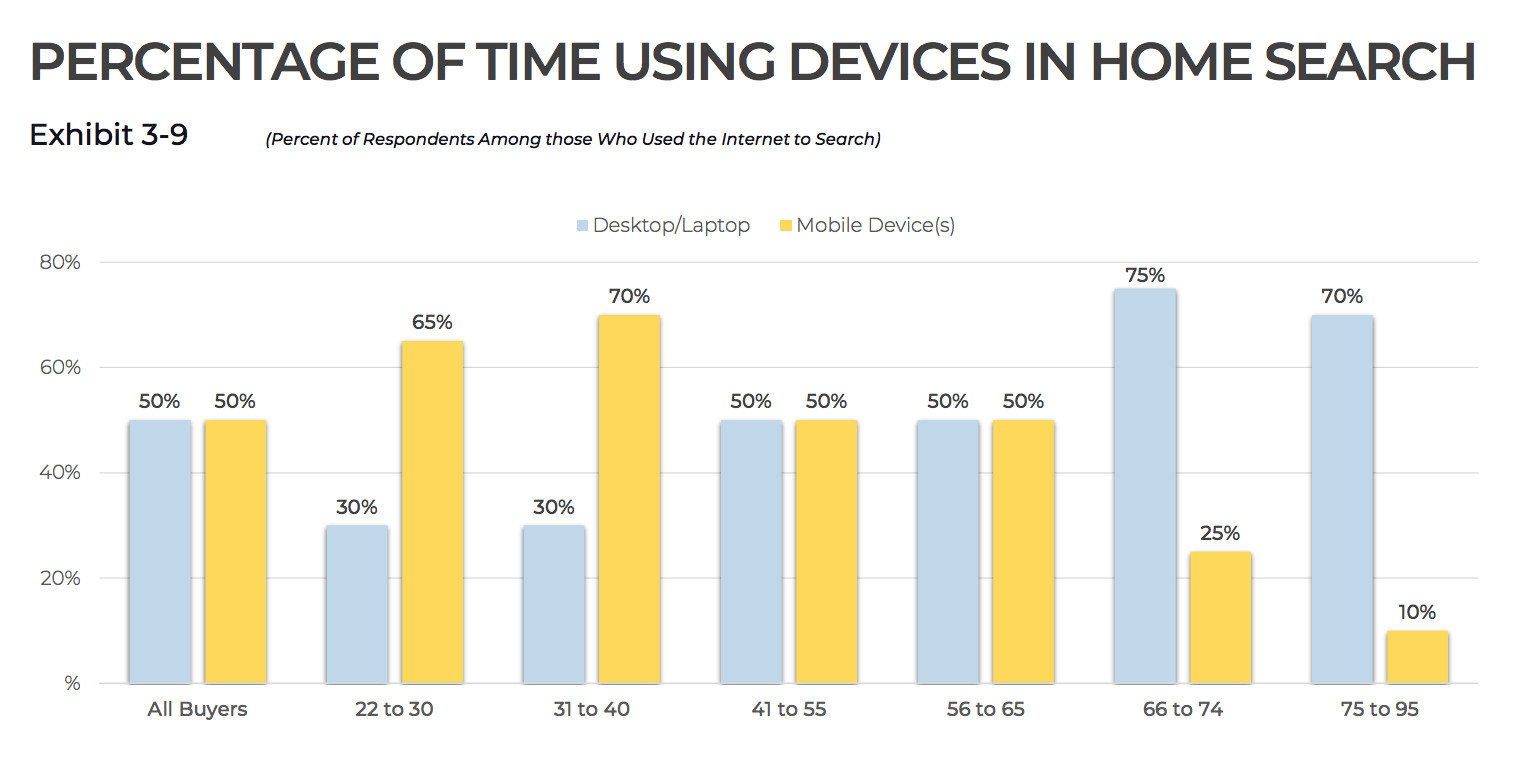This is the first installment in Inman’s series on the ways people from different generations approach the homebuying experience. Check back in the coming days for additional stories on homebuyers from Generation Z, Generation X and the baby boom generation as part of Agent Appreciation Month. Take advantage of our Agent Appreciation Sale, and subscribe to Inman Select for only $85.
Colin Young began looking for a home in December 2020. At first, it didn’t go well.
“Between then and March, I looked at 15 to 25 total houses,” Young, a 33-year-old millennial who lives in Salt Lake City, Utah, recently told Inman. “I put in offers on six or seven. Many were not even remotely competitive.”
Young is in many ways the quintessential millennial homebuyer. He has an upper degree — a PhD in chemical engineering — and now works 100 percent remote. He graduated with some student loan debt, though not a crushing amount. And he was looking for a home in Salt Lake’s central neighborhoods, which are generally more urban and walkable than further flung parts of the metro area.
His battles to get a foothold in the market were also typical of would-be homebuyers in his age group.
“The challenge for me is that I was financing,” he recalled, alluding to the struggles of mortgage buyers in an era when cash is king. “So I couldn’t put in offers that were significantly over the asking price because they wouldn’t appraise.”
Young’s list of amenities wasn’t terribly long. He was hoping to stay close to the heart of the city and have a small yard that could accommodate a dog. He has a daughter who splits her time with him, so he needed at least two bedrooms. And because he works from home, he hoped to have some space where he could set up a desk. But after months, it just wasn’t happening.
“It was frustrating looking and putting in offer after offer and almost immediately being refused,” he recalled. “I thought, ‘I can’t do this. It’s not going to happen for me.’ And it kind of felt like it was going to be the last chance before the market passed me by.”
But finally, as wintered thawed to spring in 2021, Young got a break: His agent’s brokerage had previously bought a townhome in Salt Lake’s up-and-coming Ballpark neighborhood, and the company was now looking to sell the property.
“I had kind of an inside track,” he recalled. “And having that inside track was important because it allowed me to get in a really early offer.”
Young ultimately got the home, though at over $400,000 it was just barely within his budget. He had to compromise on the yard, and the Ballpark is still rough around the edges. But overall he’s happy he found something that let him begin climbing the real estate ladder.
“For me it was like, ‘Lets get into this townhome and be in the market,’” he said. “I felt like I was one of the lucky ones.”
Young’s story is playing out again and again right now in cities all across North America, as younger buyers claw their way into one of the most punishing housing markets in recent memory. But here’s the thing: Buyers like Young are both the present and the future of real estate. Indeed, millennials have now overtaken baby boomers as the largest cohort of real estate consumers, and their reign is likely to be long. And that means their experiences — their bidding wars, their frustrations, their losses, their victories — are perhaps the most significant trends in the business.
TAKE INMAN’S QUIZ TO SEE IF YOU SPEAK YOUR MILLENNIAL CLIENT’S LANGUAGE
This is the first of several pieces Inman is publishing on how different generations approach the homebuying process. But the story properly begins with millennials not because they’re the oldest or the youngest cohort, nor the richest or poorest. It begins with millennials because they’re simply the biggest group. And in the end, understanding millennials is the key to the future.
Table of Contents
Who are the millennials?
Though for years the word “millennial” was used as shorthand for “young person,” the generation is now well on its way into middle age. Demographers typically define the millennials — or, less commonly, “Generation Y” — as people born beginning in the early 1980s through the mid 1990s. Specifically, 1981 or 1982 are usually cited as the beginning of the generation.
That means millennials are generally the children of baby boomers, or in some cases older members of Generation X. It also means the elders of the cohort are now in their 40s, while the youngest millennials are currently approaching their late 20s. The largest cluster of the generation is around 30 at this point. “Millennials” are getting a bit long in the tooth.
Culturally, millennials came of age during a period of rapid change. The oldest members of the generation were hitting adulthood around the time of 9/11. Many then finished college and entered the workforce around the time of the Great Recession.
On the other hand, members of the cohort, especially younger ones, were also the first generation to experience the modern internet in their youth. They were the earliest adopters of social media — Facebook founder Mark Zuckerberg is a millennial — and online video. Younger millennials had cell phones in high school. And as they eased into adulthood, they moved into big cities, helping drive an urban renaissance after years of suburbanization.
According to a 2021 report from the National Association of Realtors (NAR), older millennials now make up 23 percent of homebuyers, while younger millennials make 14 percent. Combined, that means the generation represents well over a third of all homebuyers. By comparison, members of Generation X only make up 24 percent of homebuyers, and baby boomers make up 32 percent.
Defining characteristics of millennials:
- Millennials are mostly in their late 20s and 30s.
- They came of age during the Great Recession.
- Younger millennials are the first digital natives.
- They make up 37 percent of all homebuyers.
What do millennial economics look like?
The economic landscape for millennials has long been somewhat grim.
In many ways, the Great Recession continues to be the defining economic moment for the millennials even though it happened nearly a decade and a half ago. George Ratiu, a senior economist at Realtor.com, told Inman that because millennials entered the job market during a faltering economy, their wages and earnings have stagnated in the years since. Wages have begun to rise more recently, though inflation and a rising cost of living is also eating up those gains.
George Ratiu
“Today’s millennials are still dealing with the impact of the Great Recession,” Ratiu said.
A number of other economic trends also define millennials in ways that don’t apply as intensely to other generations. Ratiu pointed out, for example, that many millennials currently carry significant amounts of student loan debt. While the average amount of debt runs in the mid five figures, some individuals who earned graduate degrees ended up owing hundreds of thousands of dollars.
“Some people came out of school with a mortgage worth of student debt,” Ratiu said. “And I do think that has directly impaired a lot of people’s ability to save for a downpayment.”
Further compounding millennials’ struggle in the housing market is the fact that in the pursuit of jobs they have as a cohort concentrated “in high density, high cost urban areas in the early part of their careers,” according to Ratiu.
Much ink has been spilled about millennials’ race into big cities and their preferences for things like walkability and diversity over big homes. More recent evidence suggests that trend may be winding down as millennials have kids, but either way what’s sometimes overlooked is that the race to cities wasn’t entirely about having a hip urban lifestyle. Instead, it was also about a gravitational pull toward major jobs centers.
Whether in cities or suburbs, though, one of the things millennials are currently contending with is the fact that, according to Ratiu, new homebuilding has lagged for a decade or so — which happens to coincide with the millennials’ adulthood.
“For today’s millennial homebuyers the new home category is extremely limited,” Ratiu said.

Daryl Fairweather
This doesn’t mean millennials aren’t buying houses. Indeed, Redfin Chief Economist Daryl Fairweather told Inman that most first-time homebuyers today are in fact millennials. And NAR’s survey shows that 50 percent of homebuyers between the ages of 31 and 40 had previously been renting.
But Fairweather also said all of millennials’ economic challenges including student debt, rising home costs and low supply do weigh on the generation.
“I can’t think of a market where it’s been a harder time to be a first time homebuyer,” Fairweather noted. “And I think millennials do feel fatigued by all the competition.”
The Millennial financial landscape:
- Many millennials have seen depressed wage growth over the last decade.
- Many millennials carry significant student loan debt.
- Millennials adulthood also coincided with a period of under-building, meaning the supply of new homes is uniquely low compared to previous generations.
Where are millennials going?
The coronavirus pandemic has driven a massive upswing in remote work, and that in turn fuel numerous interstate moves from pricey coastal cities to more inland destinations such as Boise and Austin. What’s significant, however, is that as a whole millennials’ movement patterns differ somewhat from those of other age cohorts.
“Millennials are mostly looking within their current metro or at another metro in their current state,” Ratiu said, comparing millennials to baby boomers, who as a generation have the highest share of would-be movers looking at states besides the one they live in.
The 2021 survey from NAR further bears this out. It shows that for buyers between the ages of 31 and 40, the median number of miles between their prior residence and their new home was just 10. By comparison, for younger baby boomers the median was 22 miles and for older boomers it was 35.

Credit: NAR
Millennials’ age explains the difference. Because millennials are now in the middle of their careers, they’re more reliant on their local professional networks than comparatively unattached Gen Z or the now-retiring baby boomers.
“For a lot of millennials who have spent the last decade moving to big cities to built their careers, they’re very much tied to those job markets,” Ratiu said.
Other factors tying millennials to specific locations include an interest in good schools, job security and home affordability. The result is that the pandemic has allowed some millennials to extend their commute distances into the suburbs, even as they haven’t entirely broken free of their respective metro areas.
“A lot of millennial parents are moving to suburbs,” Ratiu concluded.
Millennial migration:
- Millennials are tending to move within their same state, and often within their same metro area.
- The rise of remote work has allowed millennials to extend their commutes.
- Millennials are tied to local job markets.
What are millennials looking for in a house?
Fairweather noted that, when it comes to housing choices, millennials are “more diverse in what they want than Gen X or baby boomers,” in large part because of the generational span. A 40-year-old parent is probably looking for a different type of home compared to a 28-year-old single professional.
“They’re more split because not all of them have settled down yet,” she said.
That said, there are some broad trends.

Tiffany McQuaid
Tiffany McQuaid, president of Florida brokerage McQuaid and Company, told Inman that in her market millennials tend to look for move-in ready homes. They don’t want fixer uppers.
“They don’t want to have to worry about things,” she said, comparing the cohort to the slightly older Gen X, which McQuaid sees as more willing to take on properties that require sweat equity. “They’re almost all looking for move-in ready.”
This idea that millennials want convenience came up repeatedly in conversations for this story. For example, Derrik Shockman — an agent with Windermere Abode in Tacoma, Washington, who often works with millennial buyers — also said his clients want low maintenance properties, and that desire extends as far as yards, with features like garden spaces falling out of favor.

Derrik Shockman
“They would rather have the convenience of city living,” he said, adding that smaller family sizes and a desire for walkability mean have translated into a tolerance for smaller homes. “I’m even seeing fewer people care about things like garages.”
Possibly in a nod to the challenging economic landscape millennials inherited, Shockman is also seeing surging interest in properties that have things like accessory dwelling units (ADUs) that can be rented out for additional income.
“I would say 40 to 50 percent of my buyers are looking for properties that have an additional unit, or where they could build an additional unit,” he explained. “They’re trying to offset some of their mortgage costs. I’m seeing that quite a bit as a trend.”

Kyle Whissel
This preference for homes with multiple units also came up repeatedly in conversations for this story. Kyle Whissel, CEO of the San Diego-based Whissel Realty Group at eXp Realty, said millennial buyers in his market are “looking for two to four units.”
“They’re thinking, ‘I can rent it out,’” he explained. “Or far more often, they want to Airbnb it.”
Jackie Soto, broker-owner of EHomes in California’s Inland Empire region, is seeing something similar. Some buyers are using the extra space for Airbnb, though Soto also said that in her area many millennial homebuyers want the extra space for live-in family members who provide things like child care.
Other popular amenities that agents mentioned include space for pets and good schools.
“I’ve never seen schools be more important than today,” Whissel concluded. “The millennial buyers are definitely very conscientious of that.”
Millennials’ home preferences:
- Many millennials prioritize convenience over things like sweat equity.
- Millennials are looking for ways to offset their mortgage, including by renting out parts of their properties.
- Millennials are now looking for good schools as they enter parenthood.
How are millennials paying for their homes?
Most agents who spoke with Inman for this story said their millennial clients are buying via mortgages, as opposed to with cash. For instance, Shockman said that in his market, “almost everybody I work with is getting a mortgage,” and that down payments tend to be small.
“I don’t see 20 percent down a lot, I see more like 5 to 10 percent down,” he explained, adding that there’s a misconception among many millennials that they need a full 20 percent in order to get a home.
NAR’s data shows that this phenomenon is widespread, with buyers between the ages of 31 and 40 having a median down payment of 10 percent.

Credit: NAR
Another dynamic influencing millennials buying power is an ongoing intergenerational wealth transfer between older and younger Americans.

Brandi Snowden
Brandi Snowden, a senior analyst with the National Association of Realtors (NAR), told Inman that younger Americans are beginning to inherit money from older generations such as the baby boomers. That process will continue and should influence millennials’ ability to buy homes well into the future.
Moreover, even before inheritances pay out, many millennials are receiving assistance when it comes to paying for their homes.
“Especially among our younger generations, when it comes to their sources for down payments, a good portion of that is coming from a gift or loan from a family or friend,” Snowden said.
NAR’s report ultimately revealed that a total of 28 percent of younger millennials who recently bought a home used a gift from a friend or family to cobble together a down payment. The report adds that “buyers 40 years and younger used a gift or a loan from friends and family more than any other generation.”

Jackie Soto
Millennial buyers are getting creative in other ways as well. For instance, Soto said that in her area, many members of the cohort are turning to newer companies that provide cash backing. Sometimes known as “power buyers,” such companies aim to help mortgage buyers be more competitive. Power buyers have seen explosive growth in recent years as supply dwindled.
“The younger crowd is much more receptive to using these tools to their advantage,” Soto said.
Millennial buying strategies:
- Most millennials are using mortgages to buy homes, and often put down less than 20 percent.
- Gifts and loans from family and friends are common strategies for coming up with a down payment.
- Millennials have also gravitated to power buyers in recent years.
How do millennials engage with the real estate industry, and their agents?
Millennials, especially younger ones, were the first generation that could claim the title of “digital native,” and NAR’s report shows that today they’re overwhelmingly the most comfortable navigating the housing industry on a mobile device.

Credit: NAR
If this seems like an obvious observation at this point, it’s worth pointing out that millennials are the very first generation for which, as a whole, a self-led digital approach to home searching is the only thing they’ve ever known.

Anne Jones
That reality has changed how millennial homebuyers engage with their agents. For instance, Anne Jones — who co-owns Windermere Abode with her husband Dave Jones — said younger homebuyers tend to be less impressed with a “hard sell” or the fact that an agent has a strong track record of closing deals in the past.
Instead, she said millennials are looking for “a level of authenticity” from their agents. It’s less about stats and figures, and more about communicating shared values and experiences.
Dave Jones agreed, saying that younger buyers care little for professional titles.
“They don’t care as much about what I do,” he said, “they want to know what I care about.”
The way millennials find their agents has also changed. Multiple industry members who spoke to Inman for this story said they often connect with consumers via social media. Shockman is among them, and noted that Instagram tends to be a fruitful platform.
“Social media has been huge for me,” he added, noting that effective social media posts don’t necessarily need to be all business. “That’s how you build a rapport with a younger clientele these days, just being yourself.”
Given the relative independence millennials have, and the ease with which the cohort uses technology, it’d be easy to assume they also don’t need agents. But the industry members who spoke with Inman said that in fact millennials do want agents. They just need them to act as guides and advisors during the homebuying journey, rather than as gatekeepers.
“The younger buyers and first timers are looking to our brokers for guidance as to whether this or that is a good property,” Anne Jones said. “They know what they want, but they need professional guidance.”
Millennials and their agents:
- Millennials typically approach real estate digitally first.
- They crave authenticity from their agents, rather than an impressive resumé.
- They still want agents, but see them as guides rather than gatekeepers.



 Are You Interested in West Eleventh Residences Miami?
Are You Interested in West Eleventh Residences Miami? Are You Interested in ONE Park Tower by Turnberry?
Are You Interested in ONE Park Tower by Turnberry? Are You Interested in Diesel Wynwood Condominium?
Are You Interested in Diesel Wynwood Condominium? Are You Interested in Five Park Miami Beach?
Are You Interested in Five Park Miami Beach? Are You Interested in Cipriani Residences Miami?
Are You Interested in Cipriani Residences Miami? Are You Interested in Bentley Residences Miami?
Are You Interested in Bentley Residences Miami? Are You Interested in Baccarat Residences Brickell?
Are You Interested in Baccarat Residences Brickell? Are You Interested in Aria Reserve Miami?
Are You Interested in Aria Reserve Miami? Are You Interested in 888 Brickell Dolce & Gabbana | Miami?
Are You Interested in 888 Brickell Dolce & Gabbana | Miami? Are You Interested in 600 Miami WorldCenter?
Are You Interested in 600 Miami WorldCenter? Are You Interested in HUB MIAMI RESIDENCES?
Are You Interested in HUB MIAMI RESIDENCES? Are You Interested in WALDORF ASTORIA RESIDENCES?
Are You Interested in WALDORF ASTORIA RESIDENCES?